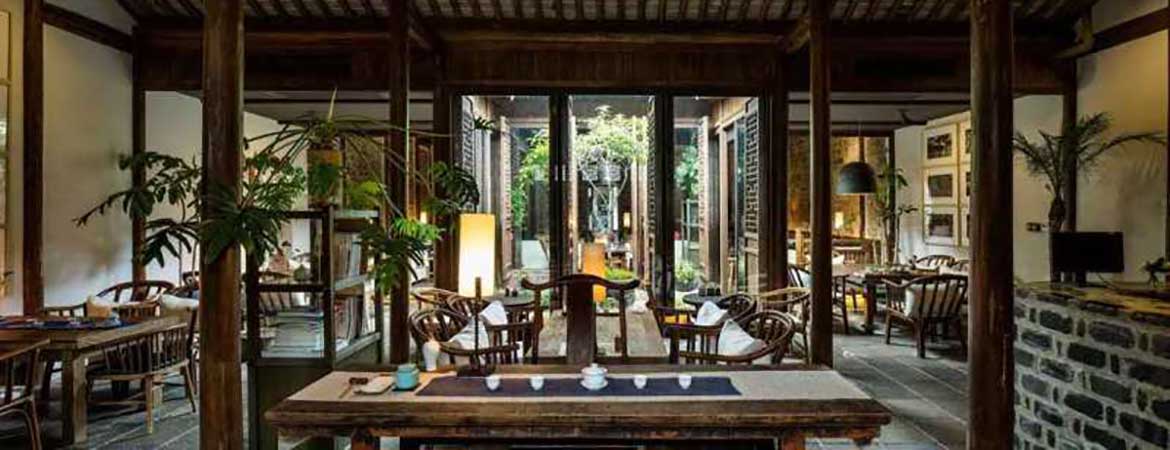Exploring Yuhua Tea and Tea Houses in Nanjing
Exploring Yuhua Tea and Tea Houses in Nanjing
China is a nation of tea lovers while Nanjing has a long history of tea planting and tea drinking. During this long period, Nanjing's profound tea culture was born and developed.
If you come to Nanjing in spring, it's just the time when the fresh Yuhua tea is newly marketed in Nanjing. How about a cup of Yuhua Tea after admiring the spring flowers?
First Acquaintance of Yuhua Tea
Nanjing Yuhua Tea, mainly produced in the surrounding areas of Nanjing, is one of the top ten famous teas in China. Its shape is like a pine needle, green and straight, slightly-pointed at the two ends of the tender leaf bud with fine hair. It is named 'Yuhua' (literally meaning 'rain flower') tea in honor of the martyrs who died at Rain Flower Terrace.
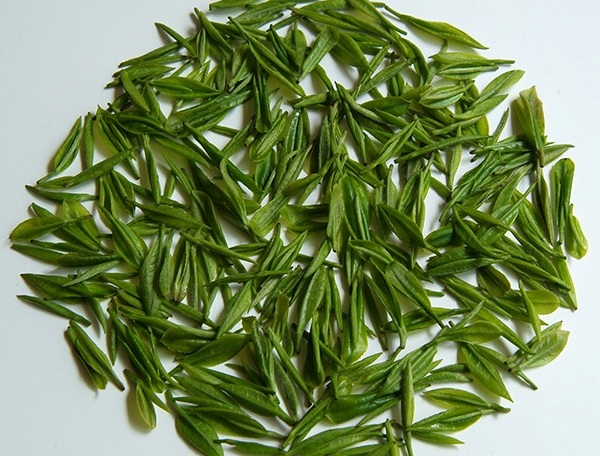
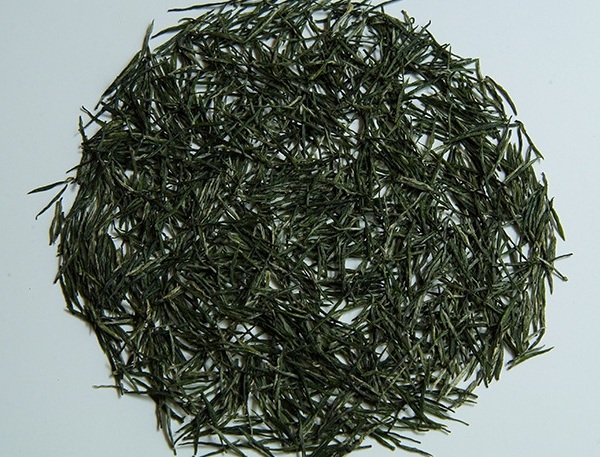
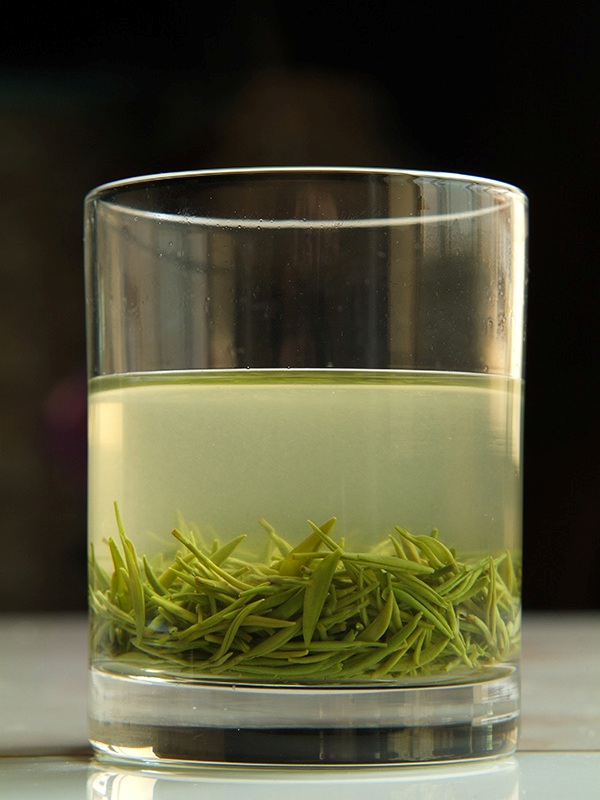
Photo Source: Sun Yat-Sen Mausoleum Tea Factory
To make Yuhua tea, the tender leaves of about 2.5 to 3cm long should be picked before Grain Rain (the 6th Chinese solar term, usually beginning around April 20 and ending around May 5), and then undergo four processes of moderate withering, heat treatment, moderate rolling, and shaping and drying.
Yuhua Tea has good color, smell and taste. The tea soup is green and clear with distinctive aroma and zesty lingering taste. If you travel to Nanjing and want to bring some Nanjing specialties to your relatives and friends as gifts, Yuhua tea would be a good choice.
Origin of Yuhua Tea
Where can we find authentic Yuhua tea? The fragrant Yuhua tea originally comes from the following beautiful places...
Nanjing Sun Yat-Sen Mausoleum Tea Factory
Located in Zhongshan Mountain National Park, the Sun Yat-Sen Mausoleum Tea Factory is the original place and birthplace of Yuhua tea and its Yuhua tea under Zhongshan Brand is the most famous. Plum Blossom Hill is the core production base of Zhongshan-branded Yuhua tea. In early spring, when the plum trees on the hill bloom, thousands of leaf buds sprout on the tea trees and absorb the fragrance of the plum blossoms. The interleaved planting of tea trees and plum trees forms a special ecological environment of 'tea trees and plum trees symbiosis'.
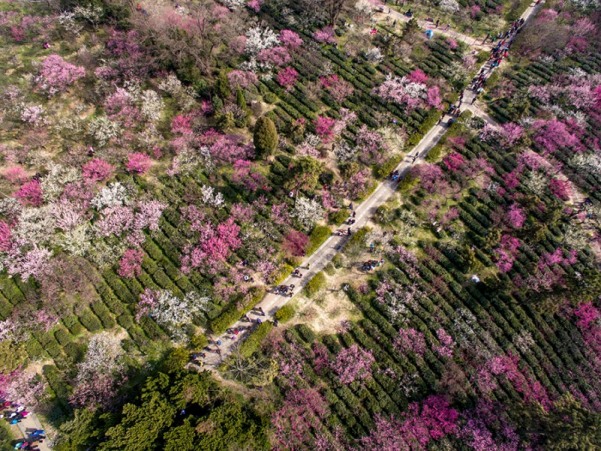
Photo Source: Sun Yat-Sen Mausoleum Tea Factory
Factory address: No. 9 Sifangcheng, Zhongshan Gate, Nanjing
Tel.: +86 25 84439790, 84439793
Shopping tip: Authentic Zhongshan-branded Yuhua tea can be bought at all major cultural and creative gift shops in Zhongshan Scenic Area.
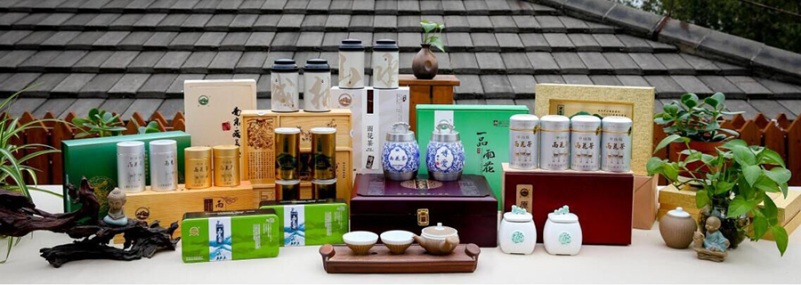
Photo source: official website of Sun Yat-Sen Mausoleum Tea Factory
Yuhua Tea Cultural Zone of Rain Flower Terrace
There is a 4.5-hectare Yuhua Tea Cultural Zone in the southwest of Rain Flower Terrace Scenic Area, where there are Yuhua Tea Museum, Yuhua Tea Art Workshop, Yuhua Tea Processing Plant and other facilities.
Focusing on Yuhua tea, the Yuhua Tea Museum comprehensively displays the Chinese teas, tea history, tea customs and tea sets, and introduces the cultural connotation of Yuhua tea to visitors through the birth and development of Yuhua tea.
The Yuhua Tea Art Workshop is a good place in the Cultural Zone for people to have a rest and taste tea. Here, you can learn about the tea ceremony, understand the tea customs of different ethnic groups, and enjoy the performance of tea culture.
The Yuhua Tea Processing Plant is the production base of Yuhua tea. In the tea picking season, you can pick the fresh tea leaves in the tea garden, and then make authentic Yuhua tea by yourself under the guidance of a tea master. Bring your self-made Yuhua tea home as a gift to your friends! That must be the most special gift they have ever got!
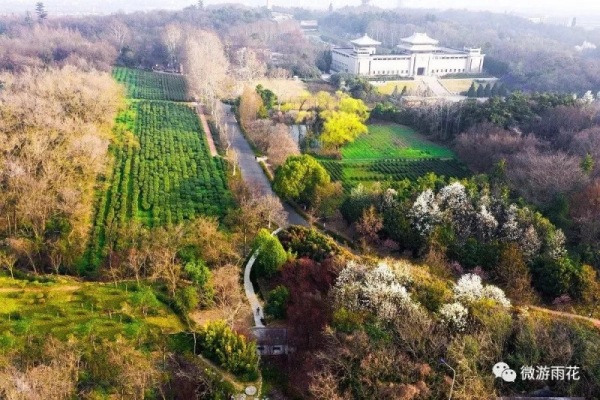
Photo source: Wechat 'yuhuatour' of Culture and Tourism Bureau of Yuhuatai District, Nanjing
Ticket: Free
Address: Inside the Rain Flower Terrace Scenic Area, No. 215 of Yuhua Road, Yuhuatai District, Nanjing
Huanglongxian Tea Culture Village
Huanglongxian Village is located in Jiangning District of Nanjing and surrounded by tea hills and bamboo forests, boasting the reputation of 'No. 1 village in Nanjing for tea-culture-themed leisure tourism'. The 'Longzhen' (literally means 'dragon needle'), single bud without leaf, and 'Longhao' (literally means 'dragon hair'), one bud with one leaf, produced here are the high-quality types of Yuhua tea. Covering an area of 2,600 mu, the tea plantations distribute on the surrounding tea hills and the two sides of roads. Thanks to the pollution-free ecological management system with no usage of chemical fertilizers and pesticides, the tea produced here is absolutely green and organic.
In addition to drinking tea and having rest, you can also watch the tea masters stir-fry tea by hands, or go deep into the tea garden to experience tea picking.
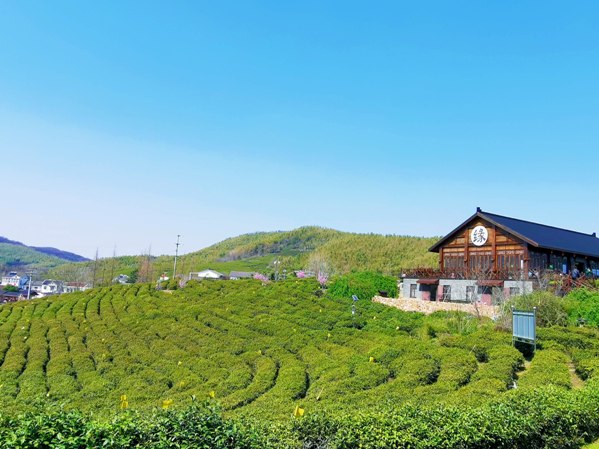
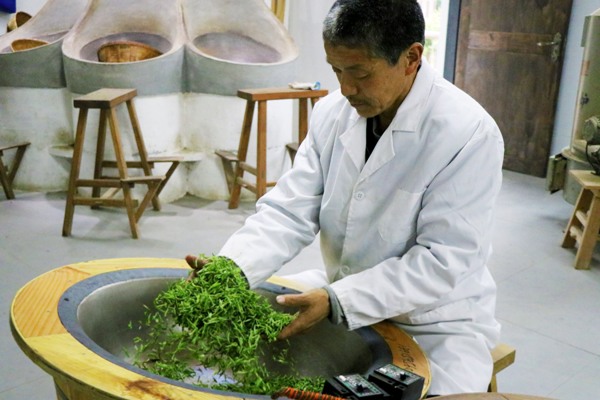
Photo source: Nanjing Jiangning Beautiful Village Construction and Development Group Co., Ltd.
Ticket: Free
Address: No. 1 Longfang Road, Paifang Neighborhood, Jiangning Communityt, Jiangning District, Nanjing
How to get there by public transport:
Take Metro Line 1 and get off at Hedingqiao station (Exit 1), take the Huanglongxian non-stop tourist bus in front of Anchan Supermarket (leave at 9:00 and return at 15:00)
Self-driving:
- Nanjing city - Airport Expressway (S55) - Zhengfang Avenue - Jiangjun Avenue - Yingxinhu Avenue - Huanglongxian Tea Culture Village
- Ningma Highway (G4211) - 337 Provincial Road - Paifang Neighborhood, Jiangning Community
- Andemen Street - Ningdan Road - Yinxinghu Avenue - Huanglongxian Tea Culture Village
Exploring Teahouses in Nanjing
On the warm and sunny spring days when flowers are in full bloom, the teahouses scattered in Nanjing are quietly waiting for you to visit. You might stop at one of them, enjoy a moment of tranquility with a cup of hot tea in hand, feel the aroma of tea and get to know the tea culture in Nanjing.
Nanjing Museum Teahouse
Key words: An old teahouse with traditional Chinese opera performance
You only needs to pay CNY 10 to enjoy a wonderful performance of artists up close and spend a leisurely afternoon there. There are performances every day except Monday. The performance starts at 14:00 and runs until 16:00. Kunqu opera is usually performed in odd-number months, and Suzhou Pingtan, Nanjing Baiju, excerpts of Yangzhou Opera, Shaoxing Opera and Wuxi Opera are performed in even-number months. The stage is small but well-equipped, with an electronic screen for simultaneous translation. After visiting the museum, you can come here to enjoy a cup of tea while listening to operas.
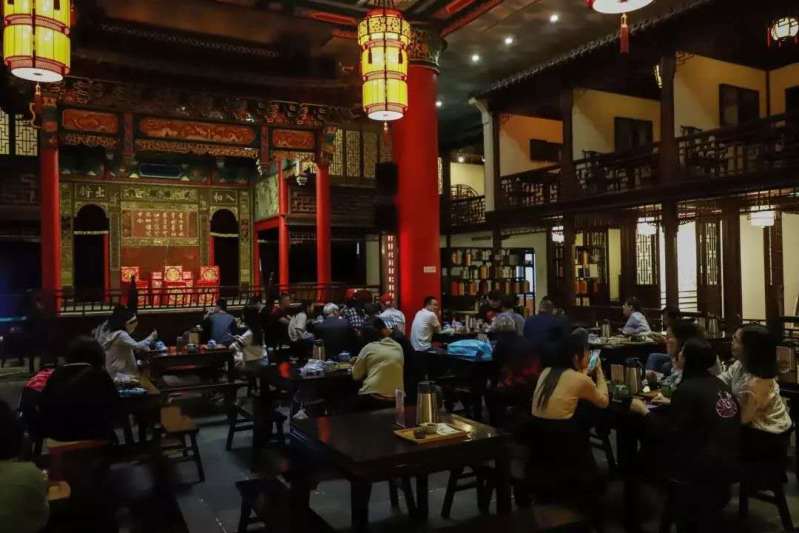
Photo source: Nanjing Museum
Address: inside the Nanjing Museum, No. 321 Zhongshandong Road
How to get there by public transport:
Take Metro Line 2 and get off at Minggugong Station (Exit 1), then walk for about 560m
Open hours: 10:00-22:00, Tuesday - Sunday (Closed on Monday)
Tel.: +86 25 84807923
Visit information: Admission to the Nanjing Museum is free.
Per capita consumption: CNY 25
Taicheng Study (Tai Cheng Shu Fang)
Key words: A bookstore-styled teahouse on the city wall
Taicheng Study is located between the Jiming Temple section and the Taiping Gate section of the Taicheng city wall. There is a staircase at the entrance, which leads down to the Taicheng Study. The decoration inside is simple and elegant, with a couple of sets of wooden tables and chairs on one side and bookshelves on the other. The books there are mainly the works of local Nanjing writers and books related to tea, which are free for readers to read. On the incense burner table in one corner, there are Chinese zither and plum vase, which add antique flavor to the whole environment. The Taicheng Study, not only a study room, but also a teahouse, mainly sells the 'Tea Brick of Ming Dynasty' of the same size as the city wall bricks. With the presence of tea artists, it is a good place to drink tea and read books.
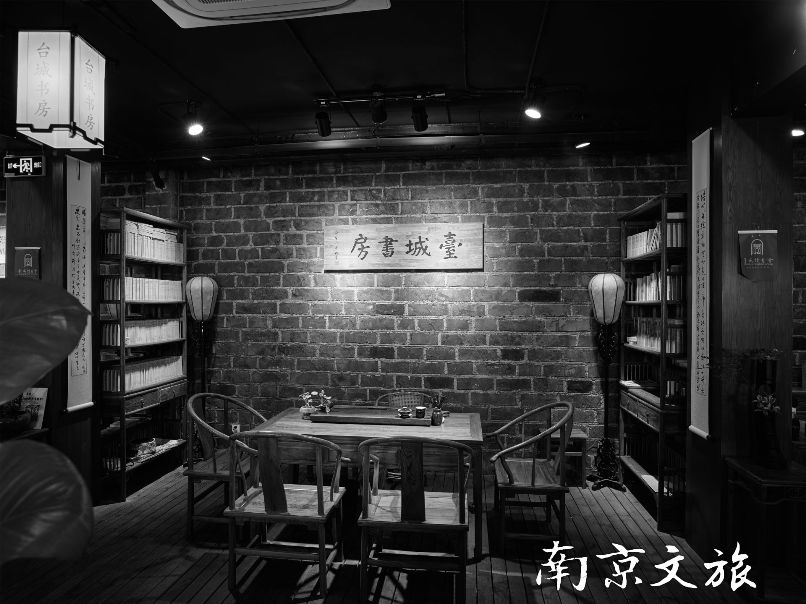
Picture source: Nanjing Municipal Administration of Culture and Tourism
Address: 200 meters east of Wumiaozha, Huanhu Road, Xuanwu District, Nanjing
How to get there by public transport: Take Metro Line 3 or Line 4, get off at Jiming Temple Station (Exit 4) and walk for about 1.3 km.
Open hours: 9:30-17:00
Tel.: +86 25 86560632
Per capita consumption: CNY 42
Shaobo Tea Garden (Shao Bo Cha Yuan)
Key words: An archaic tea garden by the Qinhuai River
Classical architecture, antique decoration, waiters in ancient costumes, and bamboo slip menu all endow Shaobo Tea Garden an antique charm. The waiters here will explain the knowledge of tea while making it. There is also GuZheng performance in the hall in the evening and guests can borrow ancient costumes for photographing. In the evening, it's such an enjoyment to sit by the Qinhuai River, having tea while watching the painted pleasure boats.
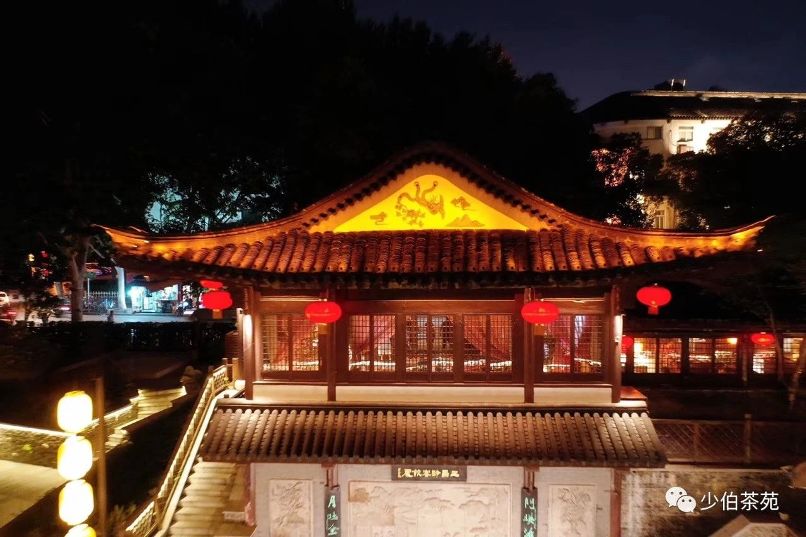
Picture source: Official WeChat of Shaobo Tea Garden
Address: Wang Changling Banquet Site, No. 121 of Pingjiangfu Road
How to get there by public transport: Take Metro Line 3 and get off at Confucius Temple Station (Exit 2) and then walk 310m
Open hours: 09:30-23:00
Tel.: +86 25 58800842
Ticket: Free
Per capita consumption: CNY 82
Yunji Teahouse in Purple Mountain
Key words: A quiet teahouse hidden in Purple Mountain
It is a courtyard surrounded by stone brick walls, in which you can find bamboo fences, stone lions, stone walls, thatched eaves... Just sit down for a moment and you can feel the peace and tranquility here. Each of the tea rooms here is meticulously decorated to match their own unique name. The lobby of the teahouse, with a dominant tone of brownish yellow, separated by curtains, has many tea wares and tea dishes hanging on the wall, demonstrating a kind of tranquil elegance. This is the best place for friends to drink tea together in the fragrance of burned incense on a warm spring day.
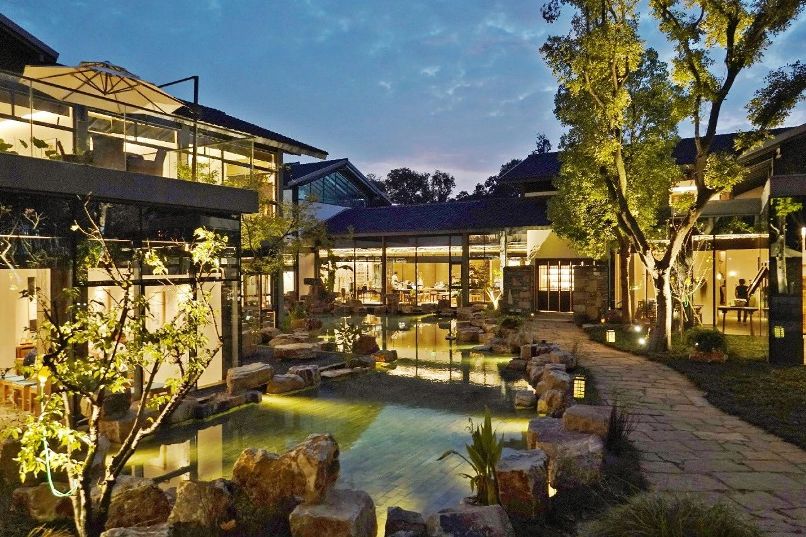
Picture source: Yunji
Address: No.7-9 of Shixiang Road, Zijinshan Scenic Area
How to get there by public transport: Take Metro Line 2 and get off at Muxuyuan Station (Exit 1), and then walk 1.3km.
Open hours: 10:00-22:00
Tel.: +86 25 84800066
Per capita consumption: CNY 213
Note: during the outbreak of COVID-19, please confirm the open hours and make an appointment before arriving. Please wear a mask when entering the teahouse.
Wa Ku
Key words: More than a teahouse
Wa Ku is an internet-famous teahouse in Nanjing with a tagline of 'a place to drink tea'. However, besides tea you may also taste home-cooked-flavor dishes made with excellent ingredients. The environment here is comfortable and relaxed, giving you a sense of home.
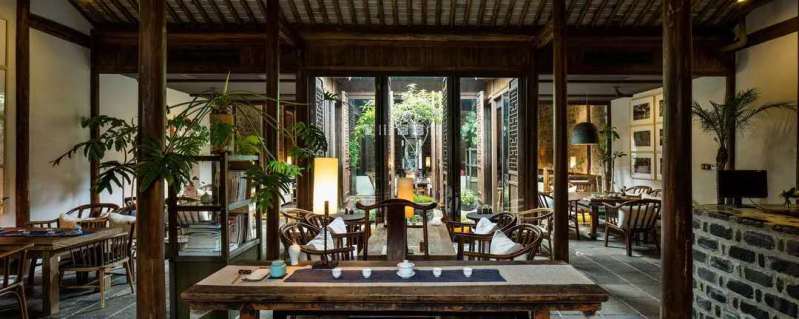
Photo source: Official WeChat Wa Ku
Address: No. 41 Zhongying, Laomendong Cultural Block (next to Deyun Crosstalk Club)
How to get there by public transport: Take Metro Line 3 and get off at Wudingmen Station (Exit 2), walk for 800m
Open Hours: 10:30-22:00
Tel.: +86 25 87785959
Per capita consumption: CNY 134
Dashi Tea Pavilion (Da Shi Cha Ting)
Key words: A teahouse offering tea and wine
Located in the antique East Zhonghua Gate Historical Culture Block (Laomendong), the Dashi Tea Pavilion enables you to overlook the street view through its window on the second floor and enjoy the especially beautiful night scene while sipping tea or flower wines. There is a whole wall of fine iron tea pots to appreciate, and you can also buy one to brew your own tea at home.
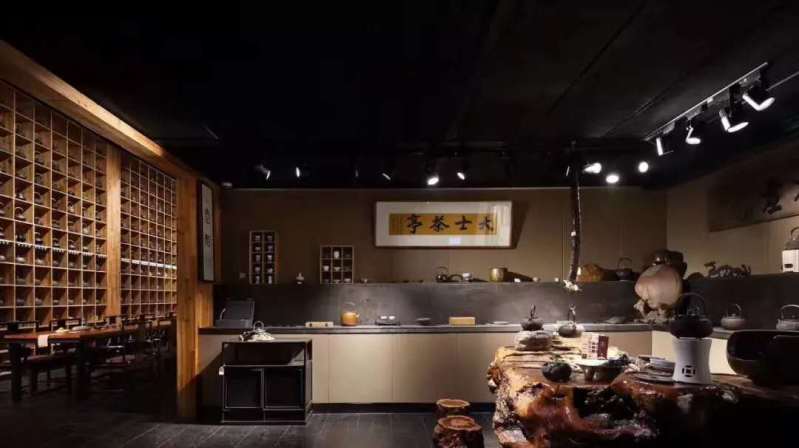
Picture source: Official WeChat of Dashi Tea Pavilion
Address: No. 117 Gutong Lane, Laomendong (2/F of Taoyuan Village/Wenqu Teahouse)
How to get there by public transport: Take Metro Line 3, get off at Wudingmen Station (Exit 2), and then walk for 840m.
Business Hours: 10:00-21:30
Tel.: +86 25 84218882
Per capita consumption: CNY 47
Closing: Chinese people love tea, especially spring tea. Make a cup of spring tea and cheers to spring!

